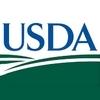Explore all the information on
Poultry vaccines
Disease prevention by vaccination is an integral part of flock health management protocols. Active immunization using live vaccines is the current industry standard. Routinely used vaccines in chickens include MDV, NDV, IBV, and IBDV, and in turkeys NDV and HEV. Newer vaccines, including molecular recombinants in which genes of immunogenic proteins from infectious agents are inserted into a live viral vector, are also being examined for commercial use. Efforts are under way to enhance vaccine efficacy by the use of adjuvants, particularly cytokines. The vaccine delivery systems include in ovo injection, aerosol, spray, drinking water, eye drop, and wing web injection. The in ovo vaccination procedure is relatively new and at the present time it is used primarily to vaccinate broiler chickens against MDV. Birds respond to vaccines by developing humoral and cellular immune responses. There are two main types of vaccine available for poultry: live or killed.
Patti J. Miller, Veterinary Medical Officer at the Southeast Poultry Research Laboratory (USDA), gave a presentation on her research on killed and live NDV vaccines against virulent NDV strains in Atlanta, USA....
Comments : 2
Recommendations: 9
1. Introduction Since 1990's, there has been a significant increase in the number of highly pathogenic (HP) avian influenza (AI) outbreaks and also in the number of birds involved in those outbreaks [1,2]. The most notable of these recent HPAI outbreaks is a series of H5N1 outbreaks started in China and Hong Kong since 1996, which then spread to other parts of the world including South-East Asia, the Middle East, Europe...
Comments : 5
Recommendations: 7
.jpg&w=3840&q=75)

Afla V ONE 5 - 300 ppb Method for Total Aflatoxin Detection in Complete Feeds and Pet Food
Suggested link
Patti J. Miller, Veterinary Medical Officer at the Southeast Poultry Research Laboratory (USDA), discussed her research on killed and live NDV vaccines against virulent NDV strains, during IPPE 2017 in Atlanta, USA. ...
Comments : 5
Recommendations: 7
Introduction In industrial poultry production, designing a preventive program for controlling coccidiosis is one of the most important decisions, in order to safeguard or improve zootechnical and financial results. Live coccidiosis vaccines are becoming increasingly popular, as they often provide a solution when the in-feed anticoccidials become inefficient, in fact they are able to promote the restoration of the...
Comments : 11
Recommendations: 3
Background Avian Influenza (AI) virus belongs to the Orthomyxoviridae family, Influenzavirus A genus. This virus possesses eight segments of single-stranded RNA genome. Two of these segments encode for two important membrane glycoproteins, hemagglutinin (HA) and neuraminidase (NA) [1], that play a key role during cellular infection. These two proteins are used for virus subtype...
Comments : 9
Recommendations: 3
WHY VACCINATE? Vaccination is an effective means to prevent and/or reduce the adverse effects of specific diseases in poultry. Poultry refers to birds that people keep for their use, and generally includes chicken, turkey, duck, goose, quail, pheasant, pigeon, guinea fowl, pea fowl, ostrich, emu and rhea. Disease-causing organisms can be classified, smallest to largest, as viruses, mycoplasma, bacteria, fungi, protozoa, and parasites....
Comments : 25
Recommendations: 0
I would like to open this topic to every fellow to comment and suggest improvement in evaluating economic loss inflicted by different HPAI types. Pakistan is one of the country adapting strain specific vaccination against Influenza viruses in chicken production operations. Moreover role of migrating birds is also due to be discussed in detail. I am here to share experience of Pakistan. I would request to open a specific portal for influenza to share the news in...
Comments : 4
Recommendations: 0
Agriculture (including livestock, fisheries and agro-forestry) is the main economic sector in the West African region, representing around 40% of its GDP and employing around 80% of its total population. The Livestock industry plays a major role in this sector, as animal food security is considered a major player in the agricultural growth of the sub-region. The vulnerabilities of this industry has been exposed over the years as there has been direct threats, which has affected the...
Comments : 8
Recommendations: 1
Introduction With the growth of the poultry industry, avian salmonellosis became a limiting factor in poultry farms, in which can cause significant economic losses in all stages of production. Avian salmonellosis is the term that designates a large group of acute or chronic bird diseases caused by one or more bacteria of the genus Salmonella (Gast, 1997). These bacteria are...
Comments : 1
Recommendations: 0
Vaccination for certain diseases is an important component of the health management program for commercial meat turkey production. Because of logistical challenges almost all routine vaccination of meat turkey flocks is administered through the drinking water. Examples of diseases for which vaccination is performed include Newcastle disease, bordetellosis (turkey coryza), fowl cholera, and hemorrhagic enteritis. Figure...
Comments : 2
Recommendations: 0
Introduction Immunosuppression in poultry causes widespread and significant economic losses, by decreasing vaccine effectiveness, causing excessive post-vaccine reactions, and allowing secondary infections like E. coli to establish, requiring antibiotic treatment. Dexter M. Abrigo and Stephane Lemiere* explain how to reduce immunosuppression to build a good and solid immune...
Comments : 2
Recommendations: 0
Magni-Phi (Phibro Animal Health) is a triterpenoid saponin feed additive that has been shown to exert anticoccidial effects in broilers. A series of four floor pen studies was carried out to evaluate the efficacy and performance responses of Magni-Phi (MP) when used in combination with a standard coccidiosis vaccination program. Trials 1 and 2 were designed to assess the effects of MP (0 and 250 ppm) in birds receiving CocciVac at hatching. Trial 3 was designed to determine the ideal...
Comments : 0
Recommendations: 1
Hello, is there any new strain of chicken infectious anaemia virus affecting adult birds (laying birds)?
Thanks ...
Comments : 0
Recommendations: 0
Maricarmen García BS, MS, PhD, Professor and Researcher at the University of Georgia, speaks about the measures to control ILT disease, about the situation in the US and about the development of new vaccines. ...
Comments : 1
Recommendations: 0
INTRODUCTION
Chicken infectious bronchitis is a worldwide infectious disease affecting different poultry sectors. It was first described in 1931 in young chickens in the United States (Butcher et al., 2002). It is caused by several serotypes of Coronavirus (IBV) which are variably distributed. Some emerging variants spread from country or primary foyer where they are isolated to another (Rafiei et al., 2010)...
Comments : 0
Recommendations: 1
Avian influenza, or “bird flu,” poses a continuing threat to birds, animals, and people throughout the world. In December 2014, the presence of a highly pathogenic avian influenza H5 virus in both domestic and wild birds was confirmed in Washington State. Since then, the virus has been found in wild birds in California, Idaho, Utah, Nevada, and Oregon.
...
Comments : 1
Recommendations: 0
Is it right to delay the vaccination for the coccidiosis from 4th day to 7th day for Grand parent chicks ? What can be the disadvantages for this delay? ...
Comments : 0
Recommendations: 0
Vaccination is one method used to help prevent the spread of infectious poultry diseases, but current vaccines could be safer and more effective. At the Agricultural Research Service’s Southeast Poultry Research Laboratory (SEPRL) in Athens, Georgia, scientists are developing vaccines to help reduce virulent virus shedding—excretion of virus by a host—and disease transmission from infected birds...
Comments : 0
Recommendations: 0
.jpg&w=3840&q=75)

Afla V ONE 5 - 300 ppb Method for Total Aflatoxin Detection in Complete Feeds and Pet Food
Suggested link
Can anyone tell us. We are having broiler breeder flock of the age 59th week of age. We did Elisa test for ND N we got C.V 15-16. At the same time we got high titres up to 22000. So, at this condition, should I go for vaccination for ND or I can delay it? ...
Comments : 0
Recommendations: 0
Introduction Fruits and vegetables, whole grains, beverages, and some fortified or omega-3 enriched products can be considered as functional foods. In fact, consumption of omega-3 is associated with reducing the risk of cardiovascular diseases, and cancers (Mozaffarian et al., 2005; Theodoratou et al., 2007) besides improving animal health and blood parameters (Jameel and Sahib, 2014). Tissue structure, muscles are the...
Comments : 2
Recommendations: 0





.jpg&w=3840&q=75)



.jpg&w=3840&q=75)











.jpg&w=3840&q=75)











